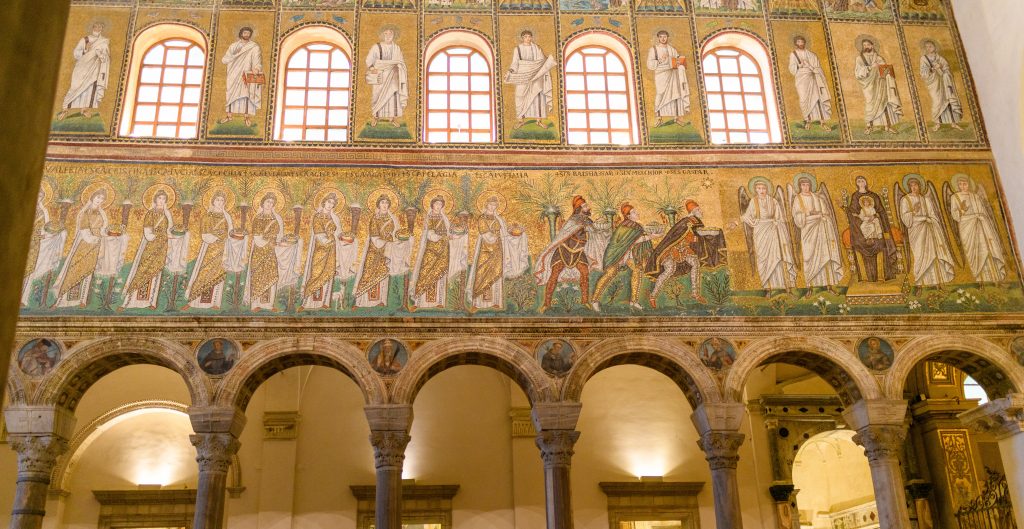Lucy of Syracuse
Virgin Martyr of the 4th Century
Hagiography – Lucy, a young virgin from Syracuse, Sicily, became devoted to Christ and determined to follow him through a chaste life of poverty. Her mother, however, was opposed. When her mother fell ill, Lucy took her to pray to Saint Agatha, a venerated martyr from a nearby town in Sicily. Miraculously healed, she soon betrothed Lucy to a nobleman, not realizing her daughter’s vow to Christ. Lucy refused to go through with the marriage, and her now sympathetic mother worked with her to give away Lucy’s considerable inheritance. Her rejected fiancé, furious at losing such a fortune, reported her to the local pagan magistrate, Paschasius, on charges of being a Christian.



By 287, the emperor Diocletian had consecrated himself and his co-rulers as “sons of gods and creators of gods” and turned the empire into a sort of theocracy. In 303–304, he issued four edicts ordering the persecution of Christians, and it was under these edicts that Paschasius enjoyed permission to torture Lucy. Enraged by her refusal to renounce her faith in Christ, he put her through various mental and physical tortures. None of them moved her, leading Paschasius eventually to execute her.
Lucy’s hagiography, found in The Golden Legend, tells of Lucy’s holy power. While praying with her sick mother, she saw a vision of Agatha asking why she felt the need to pray to her when she, Lucy, could have healed her mother herself. Various art pieces depict her standing defiant before Paschasius, able to resist a crowd of men and then a herd of oxen, all summoned to carry her off to a brothel to be gang raped. When the oxen failed to move her, boiling oil was poured over her. Paintings depicting her holding a pair of eyes refer both to her name, which means light, and to stories of her gouging her eyes out so as to no longer be beautiful. Paschasius’ friends eventually plunged a dagger into her neck. Lucy died only after a priest arrived to bring her the Eucharist. She is celebrated as the mediator (saint) of Syracuse, Sicily. Still venerated by Catholic, Orthodox, Lutheran, and Anglican churches, Lucy’s feast day is on December 13 annually.
